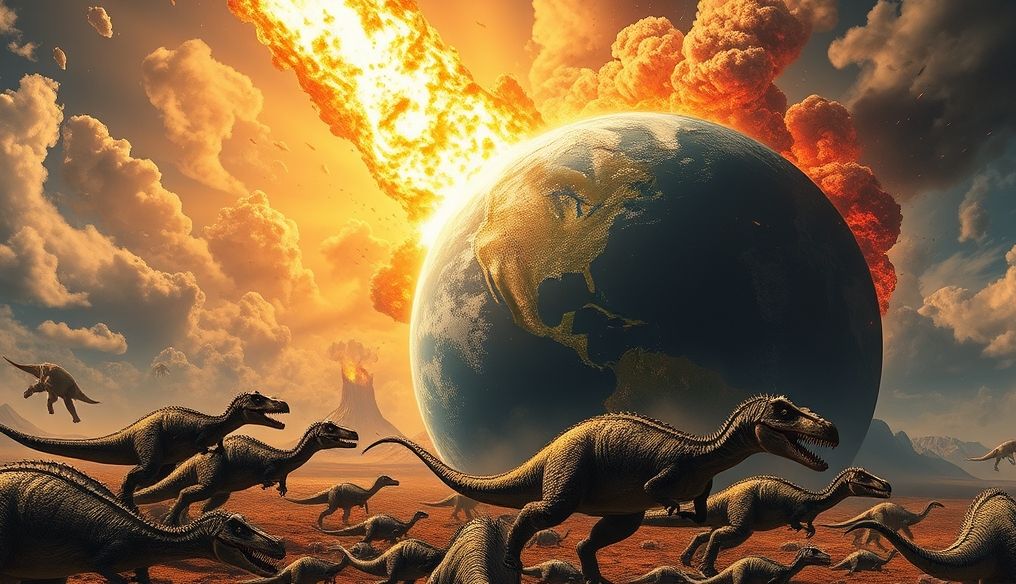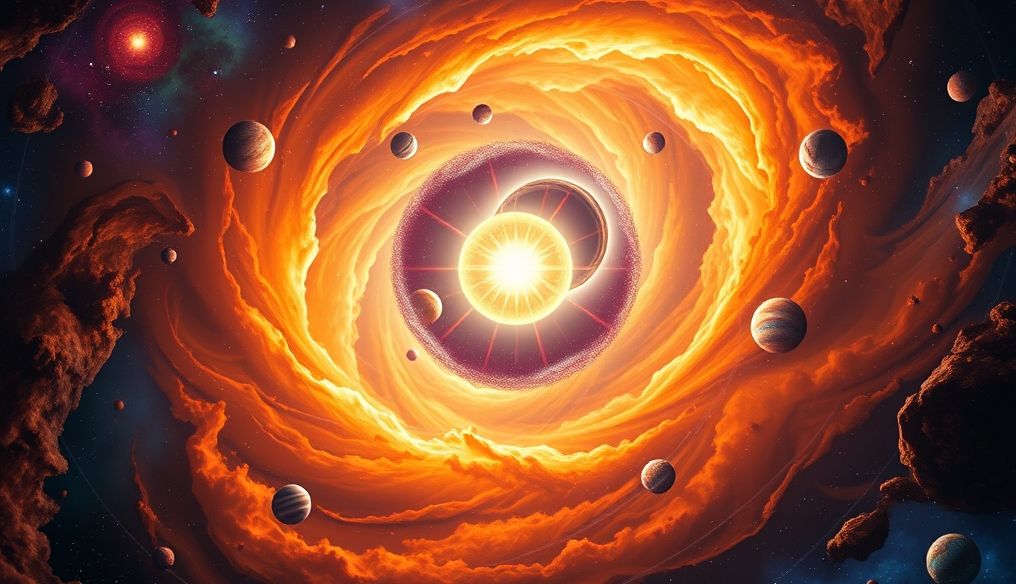Did an Asteroid Alone Cause Dinosaur Extinction? A Deeper Look into the End of the Dinosaur Era
The extinction of the dinosaurs, a catastrophic event that occurred about 66 million years ago, has long fascinated scientists and the general public alike. While the impact of an asteroid on Earth is considered the primary cause of this mass extinction, growing evidence suggests that the picture is more complex than that. Was the asteroid alone enough to wipe out these majestic creatures, or did other factors play a crucial role in this historical event? In this article, we will explore the scientific evidence supporting the asteroid theory, as well as other factors that may have contributed to the extinction of the dinosaurs.
The Asteroid Theory: The Strong Evidence
The asteroid theory was originally proposed in 1980 by a research team led by Luis Walter Alvarez, after discovering a thin layer of iridium, an element rare on Earth but abundant in meteorites, in rock layers dating back to the end of the Cretaceous period. This layer led scientists to believe that a major impact had occurred at that time.
The Chicxulub Crater: The Decisive Evidence
The strongest evidence for the asteroid theory is the Chicxulub crater, a massive impact crater buried beneath the Yucatan Peninsula in Mexico. This crater is about 180 kilometers in diameter and is believed to have been formed by the impact of an asteroid about 10 kilometers in diameter. The crater dates back to the same period of time that the dinosaurs went extinct, making it the ideal candidate for the main cause of this extinction.
Impact Effects: A Series of Catastrophic Events
Scientists believe that the Chicxulub asteroid impact triggered a series of catastrophic events that ultimately led to the extinction of the dinosaurs. These events include:
- Massive Earthquake: The impact caused a global earthquake estimated at 10 on the Richter scale, leading to landslides and devastating tsunamis.
- Global Wildfires: The impact ignited widespread wildfires, destroying vegetation and releasing massive amounts of smoke and ash into the atmosphere.
- Impact Winter: The ash and dust released into the atmosphere blocked sunlight, leading to a significant drop in temperatures and the emergence of an "impact winter" that lasted for several years.
- Acid Rain: Gases released from the impact caused severe acid rain, polluting water and destroying plants.
Other Potential Factors: A More Complex Picture
Despite the strong evidence supporting the asteroid theory, some scientists believe that other factors may have played a role in the extinction of the dinosaurs. These factors include:
Intense Volcanic Activity: Long Periods of Eruption
During the same period of time that the dinosaurs went extinct, India was experiencing intense volcanic activity in an area known as the Deccan Traps. These volcanic eruptions released massive amounts of greenhouse gases, such as carbon dioxide, into the atmosphere, leading to climate change and rising global temperatures.
Was Volcanic Activity Alone Enough to Eliminate the Dinosaurs? It is unlikely that volcanic activity alone was enough to eliminate the dinosaurs, but it is believed to have contributed to weakening ecosystems and making them more susceptible to the catastrophic effects of the impact.
Gradual Climate Change: Long-Term Fluctuations
Before the asteroid impact, the Earth was already experiencing gradual climate changes. Evidence suggests that sea levels were changing and temperatures were fluctuating. These climate changes may have stressed ecosystems and made them less able to adapt to sudden changes.
Competition and Evolution: Survival Pressures
As small mammals evolved and increased in number, dinosaurs may have faced increasing competition for resources. In addition, some dinosaurs may have had difficulty adapting to changes in the environment, making them more vulnerable to extinction.
The Interaction Between Factors: The Most Likely Scenario
It is likely that the extinction of the dinosaurs was the result of a complex interaction between several factors, not just a single event. Climate changes and volcanic activity may have weakened ecosystems, making them more susceptible to the effects of the asteroid impact. The impact triggered a series of catastrophic events that exceeded the ability of ecosystems to adapt, ultimately leading to the extinction of the dinosaurs.
Lessons Learned: The Importance of Biodiversity
The extinction of the dinosaurs is a stark reminder of the importance of biodiversity and the ability of ecosystems to adapt to changes. When ecosystems are diverse and healthy, they are more able to withstand shocks and sudden changes. However, when ecosystems are stressed or undiverse, they become more vulnerable to extinction.
Conclusion: The Asteroid Was the Trigger, But...
In conclusion, although the asteroid impact was most likely the main trigger for the extinction of the dinosaurs, other factors such as intense volcanic activity, gradual climate change, and competition for resources may have played a significant role in this catastrophic event. Understanding these multiple factors helps us to better understand how mass extinctions occur and the importance of preserving biodiversity to protect our planet from future disasters.
Sources:




